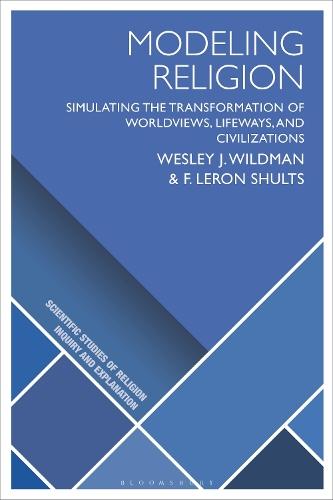Overview
What role has religion played in the major civilizational transformations associated with the Neolithic Revolution, the Axial Age, and Modernity? This book introduces new methodological tools and material insights for guiding conversations about these debates. The authors introduce a new branch of computational humanities, using computational modeling to simulate civilizational transformations. They integrate multiple theories across many disciplines, including the scientific study of religion, and evaluate the relative importance of those causal theories in processes of civilizational change. Materially, the book sheds new light on major debates among historians, archaeologists, and other social theorists on the role of religion within these major transitions. The book tackles the urgent question of what sort of civilizational transformations might be possible in a world where the influence and significance of religion continues to decline wherever technology, education, freedom, and cultural pluralism are most advanced.
Full Product Details
Author: Wesley J. Wildman (Boston University, USA) ,
F. LeRon Shults (University of Agder, Norway)
Publisher: Bloomsbury Publishing PLC
Imprint: Bloomsbury Academic
ISBN: 9781350367302
ISBN 10: 1350367303
Pages: 256
Publication Date: 11 July 2024
Audience:
Professional and scholarly
,
Professional & Vocational
Format: Hardback
Publisher's Status: Active
Availability: Manufactured on demand

We will order this item for you from a manufactured on demand supplier.
Reviews
A ground-breaking book highlighting new research and revolutionary applications of computer simulation to the human condition. A new field is born. * Saikou Diallo, Old Dominion University, USA * This important book by two pioneers in the computational science of religion presents a dazzling array of social simulation models based on theoretical integration and qualitative and quantitative data to explain how religion was integral to our species' civilizational transformations. Their pathbreaking methods will challenge and inspire scholars and scientists alike who are concerned with our enigmatic past and uncertain future. * Armin W. Geertz, Emeritus Professor of Religion, Aarhus University, Denmark * This remarkably broad work is essential for those interested in answering ‘Big Picture’ questions regarding the role of religion in the transformation of societies over time. Concepts from cultural anthropology, cognitive psychology, and sociology are integrated to tackle problems of daunting complexity. The authors have demonstrated the importance of this new tool for social sciences in general. * Luke Galen, Professor of Clinical Psychology, Grand Valley State University, USA *
A ground-breaking book highlighting new research and revolutionary applications of computer simulation to the human condition. A new field is born. * Saikou Diallo, USA * This important book by two pioneers in the computational science of religion presents a dazzling array of social simulation models based on theoretical integration and qualitative and quantitative data to explain how religion was integral to our species' civilizational transformations. Their pathbreaking methods will challenge and inspire scholars and scientists alike who are concerned with our enigmatic past and uncertain future. * Armin W. Geertz, Emeritus Professor of Religion, Aarhus University, Denmark *
Author Information
Wesley J. Wildman is Professor of Philosophy, Theology, and Ethics, and of Computing and Data Sciences at Boston University, USA; Professor II in the Institute for Global Development and Planning at the University of Agder, Norway; Executive Director of the Center for Mind and Culture in Boston; and Executive Director of Wildheart Evolution in Boston. F. LeRon Shults is Professor in the Institute for Global Development and Planning at the University of Agder, Norway and Research Professor at the NORCE Center for Modeling Social Systems in Kristiansand, Norway.




